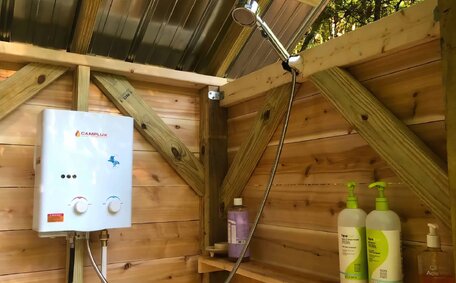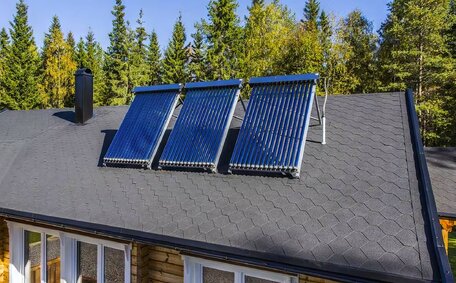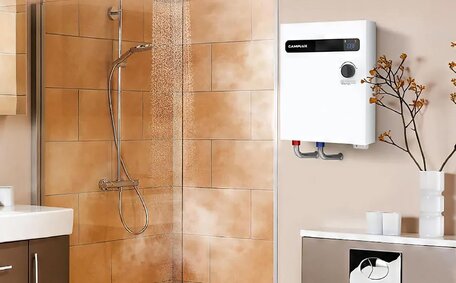How Poor Water Quality Impacts Plumbing Health and Causes Emergencies
Poor water quality can lead to significant damage in your plumbing systems. Contaminants like chemicals, minerals, and unstable pH level can cause metal pipes and fittings to corrode, promote scale buildup, and lead to clogs or leaks over time.
- Sediment and mineral deposits entering your water supply can accumulate in pipes, reducing water flow and potentially leading to burst pipes or water damage.
- Corrosive water can cause your tank and other metal components to deteriorate from the inside out, weakening them structurally and making leaks more likely.
- Bacteria and other microorganisms thriving in low-quality water can build up in pipes as biofilm, which can break loose and clog fixtures.
Issues arising from inadequate water quality can rapidly escalate into emergencies such as flooding, loss of hot water, or sewer backups. To protect your property from potential plumbing emergencies, like burst pipes, consider these preemptive measures:
- Install water filtration or treatment systems designed to tackle contaminants impacting your plumbing.
- Arrange for regular inspections of your pipes by professionals to check for corrosion, flow problems, or early signs of wear and tear.
- If you notice a gas leak, dirty water, changes in pressure, or other warning signs, contact a plumber immediately to resolve the underlying problem and prevent additional complications.
Proactively enhancing the quality of water in your plumbing is crucial for preventing destructive buildup, equipment failures, and sudden emergencies over time.
Common Contaminants and Their Effects on Plumbing Systems
Here are common contaminants that can negatively impact your plumbing systems and contribute to plumbing problems:
- Minerals: Hard water contains high levels of calcium and magnesium, leading to deposit accumulation in pipes, which can obstruct flow, lessen appliance efficiency, and cause leaks or bursts.
- Sediment: Particles like dirt, sand, or rust entering the water supply can settle in pipes and compromise the hot water system. This can result in corrosion and blockages as time passes.
- Chemical contaminants: Pesticides, heavy metals, chlorine, and cleaning agents can affect the water quality negatively. Over time, such exposure can corrode pipes and pose health risks if ingested.
| Hard water minerals | - Pipe corrosion - Buildup and clogs - Restricted water flow | - Generally safe for consumption |
| Sediment | - Accelerated pipe wear - Your water heater damage - Burst pipes/leaks | - Generally safe |
| Pesticides | - Pipe and seal deterioration | - Nervous system issues - Higher cancer risk |
| Heavy metals | - Pitted and corroded pipes | - Risk of organ damage and developmental issues |
Installing suitable water filtration systems promptly can safeguard your plumbing’s integrity and protect your household against related risks.
Signs of Water Quality Issues Triggering Plumbing Problems
There are several clear signs that may indicate water quality problems triggering plumbing issues in your home:
- Change in taste/smell: If tap water from your faucet develops an unusual taste or odour, such as metallic, musty, or chemical smells, this often signals contaminants that could damage your supply.
- Discoloured water: Dirty discoloured water such as yellow, brown, or red indicates the presence of rust, sediment, or organic contaminants, which signifies that it contains harmful substances.
- Low water pressure: A decrease in water pressure in your home could be caused by mineral deposits or biofilm accumulation in the pipes, a direct consequence of low-quality water.
- Leaking pipes or dripping taps: Assess whether leaks result from burst pipes or from pinholes and corrosion brought on by aggressive water conditions over time.
- Noisy pipes: If you hear knocking or banging sounds, it could indicate scale deposits and flow issues linked to hard water, potentially leading to switching off water to prevent damage from leaks.
- Higher energy bills: An increasing water bill could indicate that contaminants are causing your appliances to work harder and less efficiently.
Consult our guide on what do when diagnosing water quality issues, which can stem from sediment presence to gas leaks, and find appropriate solutions. Installing a water treatment system as needed is crucial to reduce the long-term risk of serious plumbing problems due to poor water supply quality.
Immediate Troubleshooting When Faced with Contaminated Water
- When you detect signs of contaminated water such as discoloration, odour, or taste changes, it’s crucial to turn off your water supply by shutting off the water supply to stop the spread of contaminants in your plumbing system.
- Flush your system by running cold water through all taps and appliances at the highest flow for a few hours after shutting off the main valve to identify any potential plumbing issues. This helps filter out your system’s remaining contaminants, ensuring that clean water flows through your pipes.
- Collect a water sample from your water meter in a clean, sealed glass container for testing, and promptly contact your local water municipality or treatment plant for contaminant analysis.
- Upon receiving the test results, use this information to have a professional replace or update your filtration and water treatment systems to remove contaminants and prevent damage.
- Once treatment is installed, flush all water lines again per the manufacturer’s instructions to get rid of contaminants, ensuring clean usage, and consider having a licensed plumber get back and verify the purity before resuming use.
- Schedule inspections to understand what plumbing issues may be lurking every 6-12 months to check your system for issues like corrosion already underway from exposure during the contamination period.
Taking swift action at the first sign of water quality problems can help control spread in your plumbing infrastructure and reduce the likelihood of severe leaks, bursts, and the need emergency plumber service interventions. If you’re unsure about when to call emergency services, contact an emergency plumber immediately once contamination is confirmed.
Long-Term Solutions: Improving Overall Water Quality
Installing water treatment solutions can greatly improve water quality entering your heater and other appliances over the long term. Options like water softeners, UV filters, reverse osmosis systems, and whole house filters can help prevent specific contaminants based on your water supply’s issues.
If hard water minerals are causing scale buildup and corrosion, a water softener can remove calcium and magnesium ions. The softened water aids to minimise the risk where leaks can result, allowing appliances to function more efficiently.
Those battling sediment or organic matter should arm themselves with rubber gloves boots and opt for multi-stage filtration solutions with screens and carbon blocks to trap particles. UV filters can neutralise bacteria, viruses, and harmful microorganisms, helping to prevent their growth in your water sources.
Meanwhile, reverse osmosis tackles chemical, pesticide, and heavy metal contamination through advanced purification. it ensures your drinking water does clear and safe for consumption, safeguarding your family, while also protecting the wider plumbing infrastructure.
Some key benefits of improving overall water quality through treatment include:
- Preventing scale and mineral deposits can easily buildup that hinder flow with the use of devices that can reduce water backflow
- Eliminating gross particles that can clog pipes and fixtures
- Removing microorganisms that create biofilm buildup issues
- Neutralising aggressive contaminants that infiltrate your water supply and cause plumbing component degradation
- Enhancing water pressure and flow throughout the plumbing system
While the initial cost of treatment systems may seem high, the long-term savings from avoiding plumbing emergencies caused by poor water quality make them a wise investment. For more information about your plumbing needs, please contact us, recognising that emergency plumbing services may be required outside of regular business hours.
Protecting Plumbing Health Through Preventive Measures
Preventive maintenance and routine inspections are crucial for safeguarding against water leaks and other plumbing problems caused by poor water quality. Simple steps such as periodically inspecting pipes, fittings, and appliances for leaks, corrosion, or unusual sounds can catch problems early before they turn into emergencies.
We recommend installing water quality services can help identify problems with test kits to ensure you can regularly monitor your supply for contaminants. Annual professional water quality tests can reveal if there any specific filtration needs around your home. If issues are detected, respond effectively by acting swiftly and consulting a plumber about treatment solutions.
Beyond assessment and testing, easy preventive measures include:
- Avoiding disposal of harsh chemicals, greases or solids down drains
- Upgrading old plastic pipes infrastructure prone to quality-related corrosion
For expert guidance on safeguarding your plumbing with best practices in water guidelines, contact our specialist team at Cranebrook Plumbing; we’re here to help. Reach out to us at 1300 349 338 or email us at [email protected] for inquiries, to address issues, or to book inspections.
Investing in preventive plumbing maintenance today can address issues before escalation, potentially saving substantial amounts in future emergency repair costs. Partnering with quality plumbers provides peace of mind that your system is protected, and water quality related catastrophes can be avoided.






